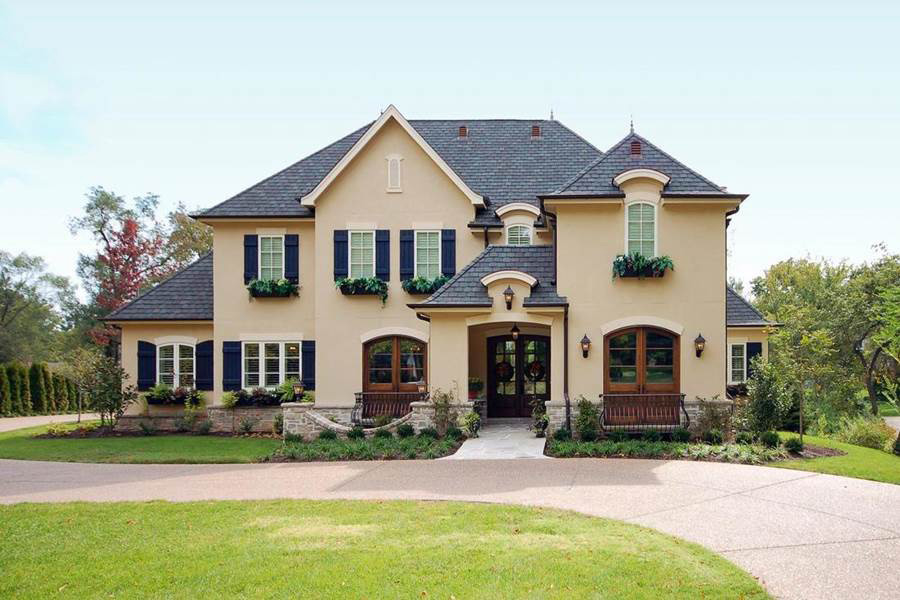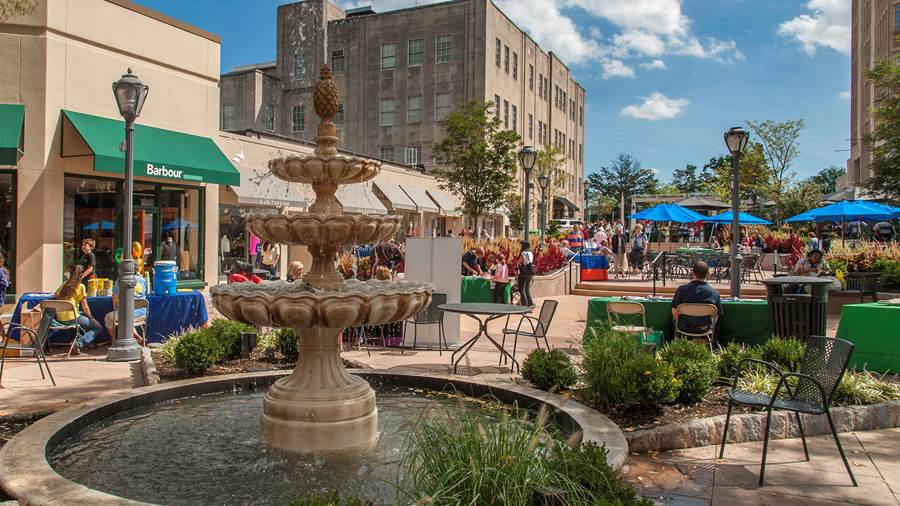Are You in the Right Place? The Importance of Place for Healthy Aging
Dec 18, 2019
With Christmas and New Year’s Day so close together, it is understandable that the transition from opening gifts with friends and family to reflecting on the past year and future year can happen rather fast. Inevitably, this reflection prompts the question: Am I where I think I should be? Or, said differently, am I in the right place? Research has shown through the “u-shaped” happiness curve that people tend to be less satisfied when they are younger and more satisfied when they are older. (See The Little Known Happiness Curve).
But there is an important related question: Am I in the right physical place?
For you, the answer may be a resounding “Yes!” I have friends of all ages and stages across the country for which this is the case. They love their cities, their neighborhoods, their friends and their homes. Their physical place is helping them thrive.
For many, however, the honest answer may not be as positive. Their physical environment may hold them back and a change, or at least a tweak, may be needed. But change is hard.
In fact, Americans are moving at an unprecedented pace. An unprecedented slowpace. For a country founded on exploration and adventure with the promise of a better future by moving to find it, we have become sedentary. Indeed, for a variety of reasons, less than 10% of Americans moved in the last year, about half of what it was in the 1950s, and the lowest since the U.S. has tracked this statistic.
 An example of one person’s forever house
An example of one person’s forever house
Perhaps part of this slowdown is an underappreciation for the impact of place. Our place influences our relationships, our habits and, ultimately, our well-being. Research has shown that positive lifestyle habits, often influenced by our place, can add years to our lifespan and “healthspan.” (See Power of Place.)
After careful consideration, my family decided to move from Baltimore to Austin earlier this year. We were grateful to find buyers for our Baltimore house who fell in love; they saw the house as their “forever house.” They loved the walkable neighborhood, the charm of an old house built in the 1890s and an open backyard which included chickens.
But, in the Age of Longevity (see Are You Prepared to Live to 100?), the idea of living in one house forever has become less realistic. Although it avoids the hassle of moving, which we all can appreciate, it also underestimates that the fact that at different stages of life there may be better places for us than our forever house.
There are a number of reasons why a different place may in fact be a better place.
For those in growth mode, such as growing families, the desire for more space can be the driver. For single urbanites, the idea of leaving the hustle and bustle of the city can be anathema to their values. But marriage and a few kids later, the sudden allure of the spacious suburbs can be too much to deny.
Sometimes, it is a move to economic opportunity. Go west young man. Geographies of high growth and opportunity often lift all boats. This dynamic can appeal to people of all ages and life stages. For my parents, born and raised in the Rust Belt, their move to Northern California in the 1980s created opportunities unavailable to them in their hometowns.
Other times, a move is triggered by a shift to a more desirable lifestyle. Better weather. Less stuff to maintain. Shorter commute. Walkability. Less expense.

Some people are trading their forever house to be near walkable suburban town squares (Source: Adrmore, PA)
There are also times when a move happens based primarily on loss. Maybe family moved away. Perhaps the neighborhood has changed and you don’t know your neighbors. (See What Does it Mean to be a Neighbor?) Or, there’s a decline in health or loss of a spouse. A move to a new location can lessen social isolation and also provide a living environment that is better set up for aging-specific needs.
In all of these situations, a move may not be necessary. Sometimes the better place is the same place just oriented differently. Maybe it’s a remodel to create more space. Maybe it’s changing the design to be more age-friendly, such as adding slip resistant tiles and grab bars in the bathroom. Maybe it’s welcoming in a roommate to reduce housing costs. Maybe it’s cultivating a strong sense of community around you. (See Why Community Matters.)
One of the psychological challenges we face is that we can be the last people to recognize a change for something better is needed. It can be easier to see changes that others should make. Unfortunately, this lack of self-awareness can be detrimental to our well-being.
Enjoy your time exchanging gifts and ringing in the new year. But don’t miss your opportunity to reflect on whether you and loved ones are in the right physical place. The decision to choose a new and better place may be the most valuable present you get – or give – this holiday season.
Take the Right Place, Right Time Assessment
Are you in the right place for right now? This quick assessment will reveal opportunities to improve your life.
Subscribe to The Blog
We hate SPAM. We will never sell your information, for any reason.

